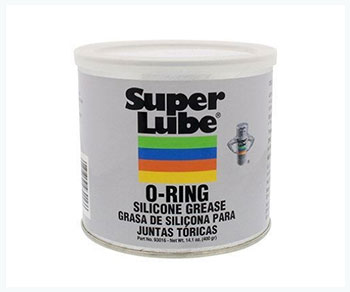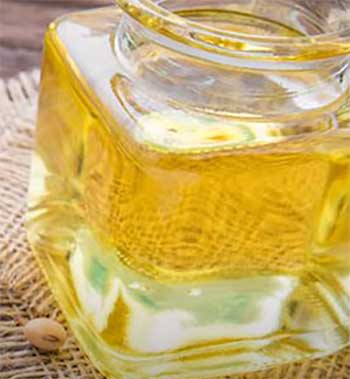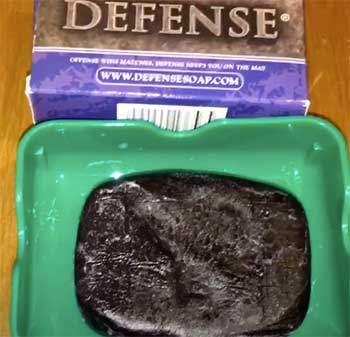It is crucial to lubricate your O-ring seal while assembling any bathroom or shower accessory. Not lubricating the O-ring will result in brittle issues, and you won’t be able to get a perfect seal.
So, using an excellent O-ring lubricant is necessary.
However, you can use an O-ring lubricant substitute if the main product is unavailable. Apart from costing minimal or nothing, many are as good as a professional quality lubricant.
Let’s learn them one by one.
Intro to O-Ring Lubrication
O-rings are usually made from nitrile rubber or other elastic materials. When squeezed between two surfaces, they compress to fill any microscopic gaps and create a tight seal. This prevents leaks in systems that contain fluids and gases.

Over time, O-rings can dry out and crack without lubrication. This allows leaks to develop. That’s why O-ring manufacturers recommend applying a thin film of lubricant before assembling components.
Dedicated O-ring lubricants are specifically designed for safe rubber conditioning. But in a pinch, could you use a common household substance as a substitute lube?
Potential alternatives include oils, greases, gels, sprays and more. However, these improvised solutions come with some risks.
Key Factors in O-Ring Lubricant Alternatives
When evaluating household products as temporary O-ring lubricants, keep these factors in mind:
Compatibility – Will the substance degrade or damage rubber seals? Oil-based lubes are usually safest.
Consistency – Thicker pastes stay put better than thin oils that run off. But they must not be too tacky.
Purity – Contaminants and additives in some products can break down rubber. Food-grade purity is best.
Performance – Does it adequately soften and condition o-rings for a proper seal?
Cleanup – Is the product easy to remove afterwards? Long-lasting residues could attract contaminants.
Safety – Is the substance non-toxic? Some chemicals pose health risks with prolonged exposure.
With those key factors covered, let’s compare some common household items that may work as O-ring lube substitutes.
Alternatives To O-ring Lubricant To Seal Perfectly
Sometimes, your nearby stores may not have O-ring lubricants, or you may be looking for an affordable alternative. That’s why it is worth checking out these options to reduce the dependency on O-ring lubricants.
- Vegetable Oil

Do you think vegetable oils are only suitable for cooking?
NO!
You can use vegetable oils for the lubrication of the O-ring. Now, you may wonder why to use this oil for lubricating O-ring. Right?
The oil has increased lubricity and reduced volatility. Plus, its ingredients are quickly biodegradable and have lower toxicity.
You can compare some of the properties to mineral oil.
- Food-Grade Silicone Grease
Another common product you can use is food-grade silicone grease, which is made of silica (sand). Though it is not 100% natural, no toxic items are used to make it.
The product can make the assembly task faster and seal the O-Ring precisely. So a perfect seal will ensure no pinching, cutting, or abrasion issues so soon.
Sealing your O-ring won’t be any problem since many manufacturers use it for lubricating different food processing parts of the machine.
Additionally, you won’t cause any smelling issues because it is a fully odorless, colorless, and tasteless product. It is even environmentally friendly and certified safe.
- Petroleum Distillates
Though it is uncommon, many household owners use petroleum distillates to lubricate O-ring. It works as special lubricating oils for having 10–20% additives.
This effective formula can provide a great seal against contamination by moisture or dirt. But it is not as good as high-quality lubricants for transferring heat efficiently.
- Soap and Water

You can use soap and water if you want a safer solution than many inappropriate lubricants.
But make sure the soap is free from perfumes and does not have any harsh chemicals.
Also, you want to seal the O-ring precisely so that wet or damp environments don’t cause any inconsistency or reactivation issues after assembling.
- Drip Oil
If you are looking for a highly efficient alternative for O-ring lubricant, you can consider choosing drip oil. It has a super clear and refined formula that can be used to lubricate various bathroom accessions.
Since it doesn’t contain any harmful additives, no contamination will occur for the underground water supplies. Hence, you will be worry-free after achieving a perfect seal on the O-ring.
- Pure Silicone Oil
Since O-ring is mainly rubber-based, pure silicone oil can work as a good lubricant. More importantly, their lubrication lastingness is higher than any water-based lubricants.
There are other impressive properties of pure silicone oil, such as high heat resistance and weather resistance capabilities.
Along with that, they have reduced the viscosity-temperature coefficient to pass more freely and smoothly throughout the O-ring parts.
In addition, silicone can effectively prevent any failure issues of O-rings or other gaskets. So, nothing will be mishandled since the oil can resolve various rubbery domains precisely.
- Olive Oil

We have already known how good olive oils are for our health. But will you believe you can use it for lubricating your O-ring?
Yes! You heard me, right!
But make sure you don’t put them inside any holes while water comes or goes since it may cause clogging issues due to their gummy residues.
Since O-ring is not a natural rubber, you don’t have to worry about improper seals. Just make sure you know the technique of proper sealing. Then, everything will be okay.
- Ester-Based Lubricants
If you want a natural, safe, and biodegradable lubricant, ester-based grease products are a decent option to consider. They don’t cause any contamination issues and damage the O-ring seal.
This type of product is suitable for use in various temperatures and effectively shows increased viscosity. Apart from regular lubrication, they can protect the bathroom accessory from corrosion and maintain great oxidative stability.
- Motor Oil
Motor oil is a common item we use for lubricating many move parts for different types of engines. Similarly, you can use this oil for the O-ring since it has additives to reduce corrosion and achieve a perfect seal while assembling the O-ring.
This oil will improve the functionality of the accessory where you will use it, and more importantly, it can extend its lifespan and prevent it from dysfunctioning soon.
- WD-40
WD-40 seems like a cure-all lubricant. But the popular spray poses risks for o-rings.
Pros
- Contains mineral oil
- Readily available
- Temporary lubrication
Cons
- Thin consistency
- Solvent additives damage rubber
- Residue attracts contaminants
- Not food safe
While the base oil offers some lubrication, WD-40 contains solvents that break down rubber seals over time. The product is also not purified for food-safe applications. Avoid this improvised solution.
- Glycerin
Glycerin is sometimes suggested as an emergency o-ring lube. But the purified chemical compound has some drawbacks.
Pros
- Available at pharmacies
- Safe for incidental use
Cons
- Very thin consistency
- Evaporates quickly
- May attract contaminants
- Not optimized for o-ring lubrication
Like soap, glycerin is water-soluble and won’t last long on seals. Its thin film also makes it a temporary solution at best for o-ring applications.
Frequently Asked Questions (FAQ)
You can’t use olive oil for O-rings if its rubber is natural. But any O-rings that Synthetic based rubber won’t have any problem from using olive oil since they have resistant properties to handle different oils and greases.
It is not a good consideration to use O-rings because Vaseline has many negatively affecting properties, which will eat away the rubber gradually. This will deteriorate the O-ring seal and lead to failure issues within a short period.
Motor oil is a highly versatile oil that you can use various things such as O-rings, rubber, and different types of gaskets. You don’t have to worry about whether it is synthetic motor oil or transmission oil.
Though you can find a wide range of lubricants for rubber, silicone lubricant is the best option.
Please avoid using any lithium grease for rubber components because it can eat away the rubber within a short and ultimately cause permanent damage to a particular accessory.
Whether rubber or neoprene objects, you should avoid using Vaseline or other petroleum products. It will speed the quality deterioration with a minimal time, costing you a high price for replacement.
The safest lubricants for o-rings are dedicated o-ring lubes, quality silicone or PFPE greases, food-grade oils, or fluorinated greases. Avoid petroleum, soap and solvent-based products.
Final Thought
So, which O-ring lubricant substitute have you decided to use after going through this discussion session? Some products may already have in our house, so there is no need to spend additional money to buy them.
But make sure the product you choose has an expiration date because using unexpired products won’t provide any benefit at all. Hopefully, you have chosen the perfect lubricant for your O-ring to lubricate it properly and quickly.
